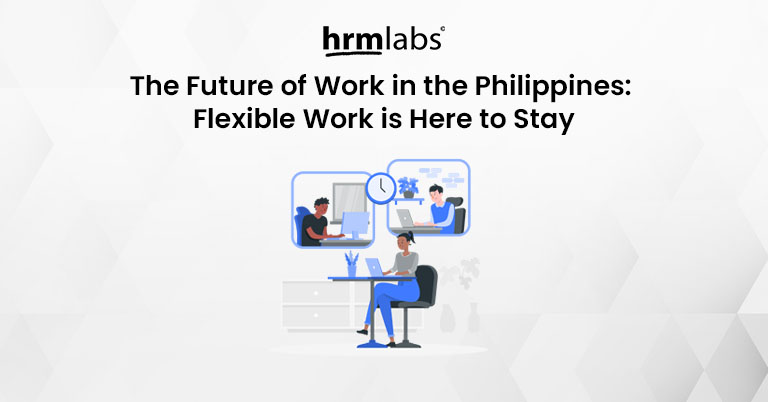The workplace has undergone significant changes in recent years, and nowhere is this more evident than in the Philippines. From the massive transition to remote work during the pandemic to the emergence of hybrid models, Filipino workers and businesses alike have adapted to new ways of operating. But what’s next? As we look to the future of work in the Philippines, one thing is clear: flexible working is not just a temporary trend—it’s here to stay.
Recent Working Trends in the Philippines
Flexible working arrangements gained prominence during the pandemic, with companies needing to adjust to health protocols and employees shifting to home-based setups. While some companies have returned to in-office work, the demand for flexibility remains strong.
According to a survey by JobStreet, many Filipino employees now prefer hybrid models—splitting their time between home and office. This approach offers them more control over their schedules while maintaining face-to-face interactions that foster collaboration. Moreover, the rise of freelancing in the Philippines further emphasizes the growing desire for flexibility. Online platforms like Upwork and Fiverr have empowered a generation of Filipino professionals to work independently, further pushing the boundaries of traditional employment.
Why Flexible Work is Here to Stay
Several factors suggest that flexible working arrangements are becoming a permanent feature in the Philippine work landscape:
- Improved Work-Life Balance: Flexible working arrangements give employees more time for personal commitments, reducing burnout and increasing job satisfaction. This shift has made work-life balance a critical factor in employee retention, with many Filipinos now considering it a top priority when choosing employers.
- Productivity Boost: Contrary to earlier fears, remote and flexible working arrangements have been shown to enhance productivity in many cases. Without the stress of daily commutes and with better control over their work environments, employees often perform better and more efficiently.
- Access to a Larger Talent Pool: For companies, offering flexible work opens doors to a wider talent pool. They can now hire skilled workers from different parts of the country—whether it’s an IT expert in Cebu or a marketing professional in Davao—without the constraints of physical proximity.
Predictions for the Future of Work in the Philippines
The future of work in the Philippines will likely revolve around continued flexibility, but with further refinement in policies and tools to support it. Here are a few trends we can expect to see:
- Hybrid Work Models as the Norm: Most companies will adopt a hybrid work approach, combining in-office presence for collaboration with remote work for focus tasks. HR leaders will need to create tailored strategies that balance the needs of employees who prefer working from home and those who thrive in an office environment.
- Increased Use of Digital Tools: As companies manage teams that are geographically dispersed, technology will become more crucial than ever. Cloud-based HR and payroll systems, video conferencing tools, and project management platforms will play a vital role in enabling seamless communication and work monitoring.
- Focus on Results, Not Hours: With flexible work, the focus will shift from measuring productivity by the number of hours worked to the outcomes delivered. This results-oriented approach will be crucial for managing both on-site and remote teams effectively.
- Enhanced Employee Well-being Programs: Mental health and well-being will remain at the forefront of HR concerns. Companies will increasingly offer programs designed to help employees cope with the stresses of flexible work environments, such as mental health support, ergonomic tools for home offices, and virtual wellness activities.
Managing Work in the Future with HRMLabs Attendance System
As flexible work becomes the norm, managing attendance and employee productivity will also evolve. HR leaders in the Philippines will need tools that offer transparency and accountability without being overly invasive.
This is where solutions like HRMLabs’ attendance management system come in. Whether your team is fully remote, hybrid, or on-site, an automated attendance monitoring system can track employee hours accurately, ensuring that everyone stays on top of their schedules. With features like biometric integration, real-time attendance tracking, and automated reports, HRMLabs helps businesses stay organized and compliant—no matter how flexible their work arrangements are.
Gone are the days of manually tracking attendance through Excel sheets or punch cards. With the HRMLabs system, HR leaders can easily manage their team’s attendance, track productivity, and even streamline payroll processes based on real-time data. It’s an essential tool for any business navigating the new world of flexible work in the Philippines.
Final Thought
As we look to the future of work in the Philippines, one thing is clear: flexibility is here to stay. The pandemic may have accelerated the shift, but it’s now up to companies and employees alike to make it work for the long haul. With the right tools and a proactive approach to managing hybrid teams, Filipino businesses can continue to thrive in this evolving landscape. And with systems like HRMLabs’ attendance monitoring solution, companies can rest assured that they’re prepared for the future—whatever that may look like.

